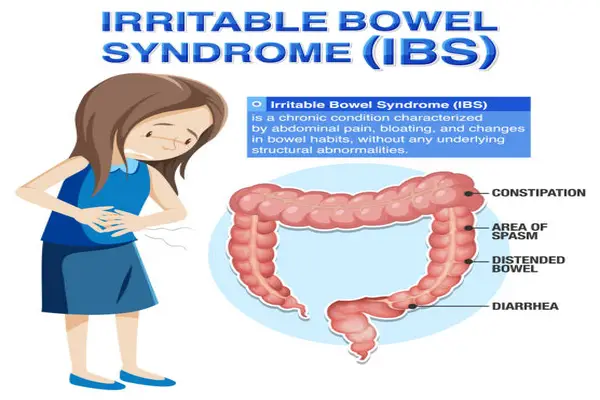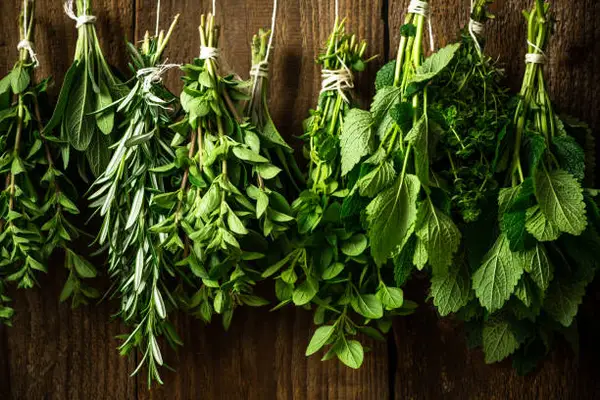Herbal Health Care and Gut Health Programs as IBS Solutions
- Daily Health
- 3 Min
- August 7, 2024
- John Hopkins
- Every Day Health, Home Remedies
Frequent bloating, watery stools, or unpredictable digestion? It may be more than just a sensitive stomach—these are hallmark signs of functional bowel disorders like IBS. According to report of Johns Hopkins, IBS affects up to 15% of the population, with most cases starting before the age of 40—often as early as childhood or young adulthood.
IBS isn’t just a random stomach issue—it’s a silent disruptor, especially for women before their 40. NIH reports show it affects women nearly twice as often as men, likely due to hormonal influences like estrogen and progesterone on gut sensitivity. In fast-paced cities like Bangalore, this isn’t surprising. Long work hours, irregular meals, mental strain, silent stress, and repeated antibiotic use quietly wear down gut health. What starts as occasional bloating or unease often becomes a persistent struggle—one that quick fixes rarely solve.
At Wellness Garden, we understand these patterns and focus on the root causes. Our platform connects you with 60+ trusted experts across Bangalore—ranging from herbal therapists to functional nutritionists and mind-body specialists. With personalised care plans, we help rebuild your gut balance, support your microbiome, and restore long-term health—naturally, and without silencing your body’s signals.

Why Herbal Care Works for IBS?
Conventional IBS treatments often aim to suppress symptoms—offering short-term relief without addressing the deeper imbalances. That’s why many people explore natural methods that support healing at the root level.
Instead of targeting just the symptoms, this approach sees digestion as part of a wider system—helping you rebuild balance from the inside out. Unlike conventional treatment, herbal care—especially when supported by AYUSH-backed remedies—works on multiple levels: calming the gut lining, reducing inflammation, and restoring the gut-brain connection.
This multidimensional healing is especially important in IBS, where the condition doesn’t follow a single pattern. Whether it’s IBS-D (diarrhea), IBS-C (constipation), or IBS-M (a mix of both), personalized herbal therapies focus on stabilizing bowel function while enhancing overall gut resilience.
By blending time-tested plant remedies with mindful lifestyle shifts, herbal gut health offers a path to sustained relief—without the harsh side effects that often come with prescription medications.
IBS: Causes and Symptoms You Shouldn’t Ignore
IBS often develops when the natural flow between your brain and digestive system breaks down. It can be linked to past gut infections, long-term stress, antibiotics, hormonal shifts, or even food sensitivities that upset your inner balance.
When this rhythm is disturbed, digestion becomes unpredictable—and your body starts to speak in subtle but persistent ways:
- A heavy, bloated feeling, especially after meals
- Gas, pressure, or burping that doesn’t ease
- Irregular bowel movements—either too slow or too frequent
- Stomach discomfort that comes in waves or tightens your lower belly
- Cramping with an urgent need to visit the restroom
- Mucus in stools or a lingering feeling of not being “done”
- Disrupted sleep and low energy that seem unrelated
IBS isn’t just about stomach trouble—it often reflects deeper imbalances across your system. Early care can make a big difference, especially with approaches that calm the gut and support long-term healing—not just short-term fixes.
How Herbs impact on the body?
Natural herbs have an effect on the body by stimulating various physiological processes. They may reduce muscle tension, minimise swelling, and help regulate digestive function, all of which are helpful with IBS symptoms. Here are some effective herbs to use to control IBS:

- Peppermint: Helps in relieving from gas and cramping by calming the muscles in the stomach.
- Ginger: Treats nausea and improves digestion.
- Chamomile: It is best for relieving stomach pain and relaxing the digestive system.
- Fennel: By calming the GI tract, fennel reduces gas and bloating.
- Curcumin: which has been found in turmeric, reduces inflammation in the GI system.
- Licorice Root: Lowers discomfort and aids in the healing process of the intestinal lining.
- Cinnamon: May minimize gas and bloating while helping to control blood sugar levels.
Long-term Benefits of Natural herbs for IBS
Several studies, including one published in Frontiers in Pharmacology, highlight how natural remedies like peppermint, ginger, and turmeric can offer long-term relief for Irritable Bowel Syndrome. These herbs work gently yet effectively—they soothe inflammation, reduce gas and bloating, support digestion, and help the body cope with stress, which is often closely linked to IBS flare-ups.
Used regularly, these Ayurvedic herbs for IBS are well-tolerated and support your body’s natural rhythm without harsh side effects. They not only ease symptoms but also contribute to overall gut health, emotional balance, and better nutrient absorption.
Incorporating herbs into your daily routine can be a sustainable, holistic way to manage IBS—bringing relief that’s both gentle and lasting.
Alternative Gut Health programs with herbs
We offer comprehensive programs to support your journey towards optimal gut health and IBS relief:
- Reclaim Gut Health: Register for one of our retreat programs, which have the goal of helping maintain and enhance your digestive system.
- A Guide to Detox: Check out how detoxifying could benefit your general health and immunity.
- Nutritional Guide for Gut Healing: Get personalized activities and food plans to help meet your specific needs which proofs importance of gut health and regulate IBS triggers.
- Exercise for Gut health: Assess physical workouts that especially support intestinal health.
- Mind-Body Balancing: Gentle techniques to resolve trauma-related IBS symptoms.
- Rhythm Restoration: Optimizing your body’s natural cycles for enhanced gut health.
- Gut-Brain Harmony: Our psychology experts focus on the crucial gut-brain connection.
Other Natural Treatments helps you
We offers a holistic approach to managing IBS through various therapies designed to support gut health and overall well-being:
- IV Treatment: Take medication for ailments such as ulcerative colitis, Crohn’s disease, and IBS. IV treatment has a possibility for bettering overall well-being, lower inflammation, and refill gut flora.
- Biofeedback: Through biofeedback, you have the ability to manage stress—a key factor in gut health program—which can help you regulate your digestion and reduce symptoms like bloating and soreness.
- Hydrocolon Therapy: Get a colonic irrigation to improve digestion, detoxify your colon, and ease symptoms like constipation and gas.
- Hypnotherapy: Using the mind-body link to address digestive problems and improve general health.
- CBT Therapy: Cognitive behavioral therapy focuses on minimizing tension related to IBS.
- Add vitamins & herbal remedies: Combine vitamins, dietary supplements, and plant-based nutrients with their healing properties to boost your health naturally.
- Diet Advice: Get customized advice for how to improve gut health naturally india by including dietary fibers, vitamin D, prebiotics, or and postbiotics in your daily meals.
Is the Herbal path right for you?
Herbs can be a great natural option for managing IBS symptoms. However, it’s crucial to consider your individual health conditions before incorporating them into your routine. Here are some factors to keep in mind:
- Allergies or any reactions
- Existing Medical History
- Prescribed Medications
- Pregnancy and Breastfeeding
- Digestive Sensitivities
Consulting with a healthcare provider can help determine the best herbs and ayurvedic medicine for irritable bowel syndrome for your specific symptoms and ensure they are safe and effective for your health needs.
Begin Your Healing Journey with Wellness Garden
Herbal health care offers gentle, lasting support for those managing IBS and other functional bowel disorders. Backed by Ayurvedic herbs and expert insight, many experience relief from bloating, irregular bowel movements, and digestive discomfort—without the side effects of harsh medication.
Often, these issues are linked to stress, hormonal shifts, or deeper imbalances. That’s why we connect you to over 600 certified experts in natural treatment for gut health, stress, managing IBS or seeking support for broader digestive concerns, you’ll find personalised care that sees the whole you—not just your symptoms.
Take the first step toward balanced gut health. Discover natural, personalised solutions designed to restore daily comfort and long-term confidence.
Frequently Asked Questions
1. How do herbs help manage IBS symptoms?
Herbs treat pain and abdominal pain, calm the digestive tract, relieve swelling and it is best medicine for gut health.
2. What is the best thing to drink for IBS?
Probiotic drinks and herbal teas like chamomile flowers ginger, and mint can help relax the GI tract and minimize symptoms.
3. What irritates IBS?
High-fat dietary habits, dairy items, coffee, alcohol, and tension are common causes of discomfort.
4. Can IBS prescription drugs be replaced with natural remedies?
Herbal treatments may supplement but not replace prescribed medicines without talking to your doctor.
5. Do long-term use of herbal remedies for IBS come with any risks?
Although usually safe, constant benefits and safety ought to be verified by a physician evaluating long-term use.
- Table of Contents
- • IBS
- • Why Herbal Care Works?
- • Causes and Symptoms
- • How Herbs Works?
- • Healing with WG
- • FQAs
Recent Posts
Join Our Newsletter
End note from WG Team
WG Team
Disclaimer: This information is provided for educational purposes and should not be construed as medical advice. Please consult with healthcare practitioners before undertaking any changes in wellness routines or adding new therapies.
Latest Blogs
Check out some of your blogs related to your interest.
- July 20, 2025
- Dr. R Sreelatha
- 3 Mins
- July 14, 2025
- 3 Mins

- July 5, 2025
- NIH
- 2 Mins

- July 4, 2025
- 3 Mins







